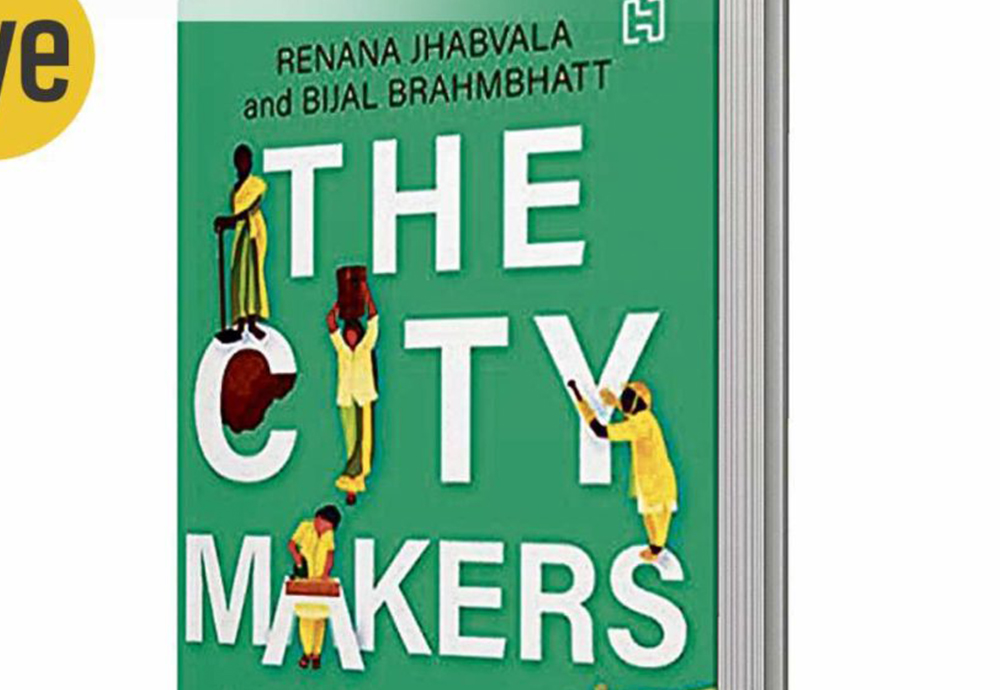
They Built Us our Cities
They Built Us our Cities They Built Us our Cities
A new book reveals how women living in urban slums are powering the transformation of their communities
Written by Roshini Suparna Diwakar
This year has brought to the limelight the range and complexity of issues that citizens in informal, urban spaces face — issues related to livelihood, health and housing. Even as mainstream media took note of the plight of the working poor following the nationwide lockdown, organisations like Mahila Housing Trust (MHT) have been working to alleviate their situation for decades. MHT, founded in 1994, grew out of the SEWA (Self Employed Women’s Association) movement to focus specifically on the habitat needs of poor urban women. More than 25 years later, MHT has published a treasure trove of insights and personal stories emerging from its work.
The City Makers: How Women are Building a Sustainable Future for Urban India, co-authored by Renana Jhabvala (executive trustee, MHT) and Bijal Brahmbhatt (director, MHT), captures the work that the organisation has done in the past two-and-a-half decades. Each chapter focuses on one area of the organisation’s work, intertwining anecdotal evidence from across the country with concrete analysis of implementation processes.
MHT began its work in Gujarat, partnering with the Ahmedabad Municipal Corporation (AMC) to deliver a one-of-its-kind project called ‘Parivartan’. Also known as the Slum Networking Project, it connected slum residents with a range of basic services, including water, sanitation and solid waste management. The programme not only delinked essential services from tenure security, but also made community participation central to its success. For the first time, the local government viewed the urban poor as citizens actively participating in their development and not as recipients of “handouts”. This was critical to the work that MHT would do and the model of community leadership that it would develop.
The underlying thread of the book is MHT’s participatory and inclusive approach. Rooted in the philosophy of community-led development, MHT created Community Action Groups (CAGs) of local women who led the advocacy for their rights. They built relationships with local government institutions, educated the community on their needs, and sourced solutions from within. Over time, the CAG model has grown, creating a new rung of leaders called Vikasinis who come together to represent the needs of their communities at the city level. These women work closely with the municipal corporation and are active participants in the planning of their city.
The book delves into the manner in which MHT has evolved its portfolio by responding to communities. Every intervention is a dialogue; a conversation between the community and MHT, that shapes the work of the latter and the lives of the former. In recent years, climate resilience has become a cornerstone of the work that the organisation does, piloting an innovative programme that builds resilience against climate stresses in 100 slums.
What sets this book apart from others that document policies and interventions in urban spaces is the centrality of the women’s voices. We hear directly from the CAG leaders and Vikasinis, who do not mince words while talking about their journeys. Their stories underscore the broader arguments made for responsible urbanisation and adequate housing for all.
The authors do not shy away from discussing challenges, barriers and failures that they have encountered along the way. Confronting private for-profit partners who jeopardised projects, facing continued gender-based discrimination in accessing a minimum wage, and dealing with funders who did not believe in the community-based model of development have been some learning experiences for the communities as well as MHT staff. “Bringing those who have lived on the margins for long to the table and demanding their inclusion requires coordinated action among many local actors and building a leadership that can be sustained over time…,” note the writers.
The City Makers is a short yet essential read for anyone working on urban development, poverty, gender or participatory governance. On the surface, it chronicles the evolution of MHT; dig deeper, and you hear voices that are often silenced, emerging to tell stories of grit, empathy and perseverance.
Roshini Suparna Diwakar is a senior qualitative researcher who works on gender, community development and participatory governance
Originally Published at : https://indianexpress.com/article/books-and-literature/they-built-us-our-cities-6872875/?fbclid=IwAR2NK9s7goRhxuLfK6QPwSsOLg2rRoZWhyAFPes9p5_jnXb_QsRzrm7iVPM
